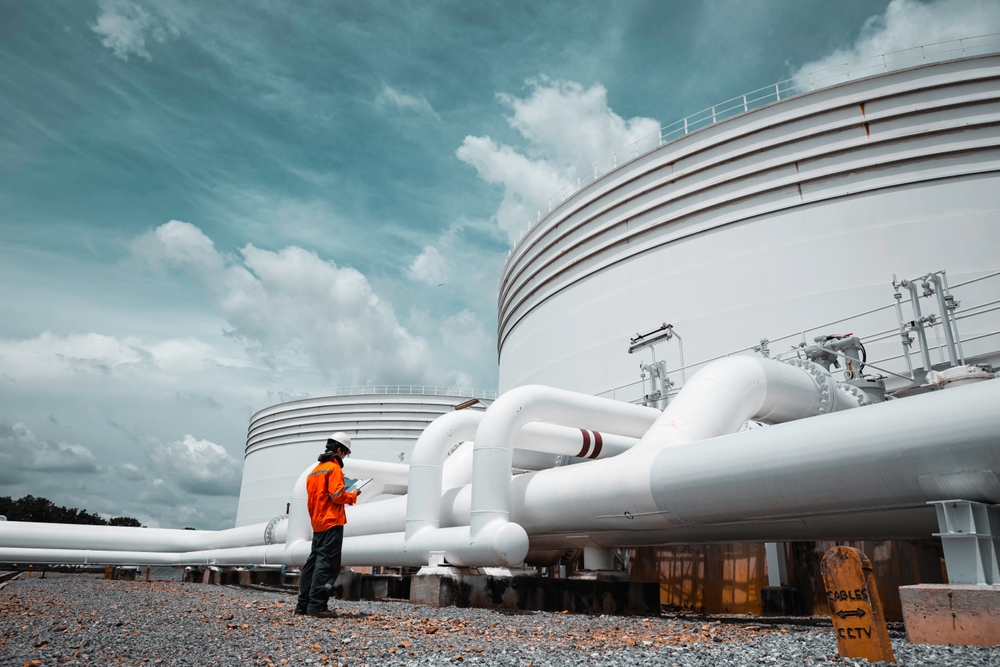Introduction:
The importance of getting the right energy to the processes of industry, transport, and daily life places the oil and gas industry among the top sectors in any country’s economy. Extractive activities involve working with multi-faceted and highly technical drilling operations. As the market matures, so do the processes and tools used for drilling to maximize efficiency within drilling operations.
The Advanced Best Practices in Oil and Gas Drilling course helps participants acquire the tools to work successfully in such a challenging and steadily changing environment. It includes basic principles and innovative approaches that elevate drilling operations to a new level. The program covers modern drilling technologies and equipment, as well as the design and planning of oil and gas wells. The course is based on best practices to improve operational performance, reduce risks, and minimize environmental impact.
In highly technical tasks where precision is paramount, this course offers practical information on optimizing drilling operations, drilling turbine wells, and advanced directional drilling. Drillers will learn to make critical decisions regarding drilling fluids, drill bits, and real-time downhole monitoring systems.
The Advanced Best Practices in Oil and Gas Drilling training aims to enhance the skills of professionals. Whether seasoned drilling engineers, project managers, or technical support specialists, participants will gain the knowledge and tools necessary for improving efficiency and fostering innovation in drilling operations, positioning themselves as leaders in technological advancement within the oil and gas exploration and production sector.
Objectives:
By the end of this course, participants will be able to:
- Improve comprehension of deep drilling procedures and equipment.
- Acquire the necessary skills for the professional design and project management of oil and gas wells.
- Master angular drilling and oil and gas well trajectory programming.
- Select and manage suitable drilling fluids.
- Define the appropriate bit and its performance characteristics.
- Apply critical real-time data for operational decisions.
- Enhance wellbore stability and control management.
- Employ practical approaches for risk assessment and management.
- Observe health and safety, noise, and other compliance requirements.
- Reduce the environmental impact of drilling activities.
- Use advanced technology devices to improve efficiency.
- Implement cost-effective drilling techniques.
- Develop higher-level thinking and analysis skills to tackle complex drilling problems.
Training Methodology:
- Case Studies
- Role Plays
- Hands-On Workshops
- Interactive Presentations
- Field Studies
- Guest Expert Speakers
Course Outline:
Unit 1: Recent Advances in Drilling Technologies
- Insight into modern-day drilling practices.
- Classification of advanced drilling systems.
- Advantages and disadvantages of new practices.
- Foreign case studies of superior technology applications.
- Development of anti-collision in drilling.
- Influence of technology on drilling performance.
- Prospective advancements in drilling systems.
- Artificial intelligence and machine learning in the drilling process.
Unit 2: Comprehensive Well Design and Planning
- Step-by-step oil and gas well design process.
- Oil and gas well planning troubleshooting.
- Incorporation of geological information in plan development.
- Design of oil and gas wells using computer programs.
- Risks in planning oil and gas well drilling prospects.
- Budget preparation and cost estimation.
- Modular approaches to planning.
- Oil and gas well design and development regulation.
- Planning of an oil and gas well: Case Studies.
Unit 3: Directional Drilling and Trajectory Optimization
- Introduction to directional drilling.
- Trajectory alteration techniques.
- Directional drilling instruments and equipment.
- Preferred courses and further developments in trajectory optimization.
- Performance modifications and alterations.
- Case studies on optimizing windows.
- Issues related to directional drilling.
- Rotary steerable systems.
- Influence of wellbore trajectory on production.
Unit 4: Selection and Control of Drilling Fluid
- Classification of drilling fluids and their characteristics.
- Factors influencing the choice of drilling fluid.
- Complex systems for assessing fluid effects.
- Fluid management with respect to environmental issues.
- Solutions for problems with drilling fluids.
- Drilling fluids and their impact on wellbore stability.
- Current trends in drilling fluid development.
- Successful fluid management practices that optimize resources.
Unit 5: Bit Selection and Performance Analysis
- Categories of drill bits and their applications.
- Factors affecting drill bit selection.
- Assessing drill bit performance.
- Strategies for increasing drill bit lifespan.
- Case studies on enhancing drill bit performance.
- Current trends in drill bit development.
- Impact of drill bit choice on efficient drilling.
- Drill bit performance analysis in relation to costs.
Unit 6: Real-time Data Analysis and Decision Making
- Role of real-time data in drilling operations.
- Collecting and analyzing real-time data.
- Organizing decision-making management.
- Analysis of practical data applications.
- Drawbacks of real-time data analysis.
- Integration of real-time data with other systems.
- Predictive analysis in drilling.
- Interrelationship between data quality and decision-making.
- Trends in real-time data analysis.
Unit 7: Wellbore Stability and Integrity Management
- Causes and effects of wellbore instability.
- Preparation measures for cementing wells.
- Use of stabilizers and other accessories.
- Mud logging as a method of wellbore surveillance.
- Wellbore stability management practices.
- Factors compromising wellbore integrity during drilling.
- New technologies related to wellbore stability.
- Cost-effective management of wellbore stability.
Unit 8: Risk Assessment and Mitigation Strategies
- Identification of risks in drilling operations.
- Methods for risk assessment.
- Strategies for eliminating identified risks.
- Examples of successful risk management.
- Monitoring methods for future risk assessment.
- Influence of risk management on business efficiency.
- Political aspects of risk management.
- Technologies enhancing risk assessment speed.
- Emerging practices in risk management.
Unit 9: Safety and Compliance Standards
- Overview of safety standards in oil drilling.
- Methods to achieve compliance.
- Role of safety inspections and audits.
- Safety awareness training programs.
- Safety management case studies.
- Relationship between safety measures and performance.
- Innovations in safety equipment.
- Challenges in ensuring safety.
- Costs associated with implementing safety measures.
Unit 10: Drilling Environmental Mitigations
- Environmental issues in drilling.
- Depressurization methods.
- EDF techniques.
- Assessment of environmental management.
- Environmental restoration case studies.
- Environmental management in regulatory settings.
- Technological advancements in environmental considerations.
- Future perspectives on environmental considerations in drilling.
- Costing for environmental mitigation.

.jpg)

.jpg)
.jpg)
.jpg)















